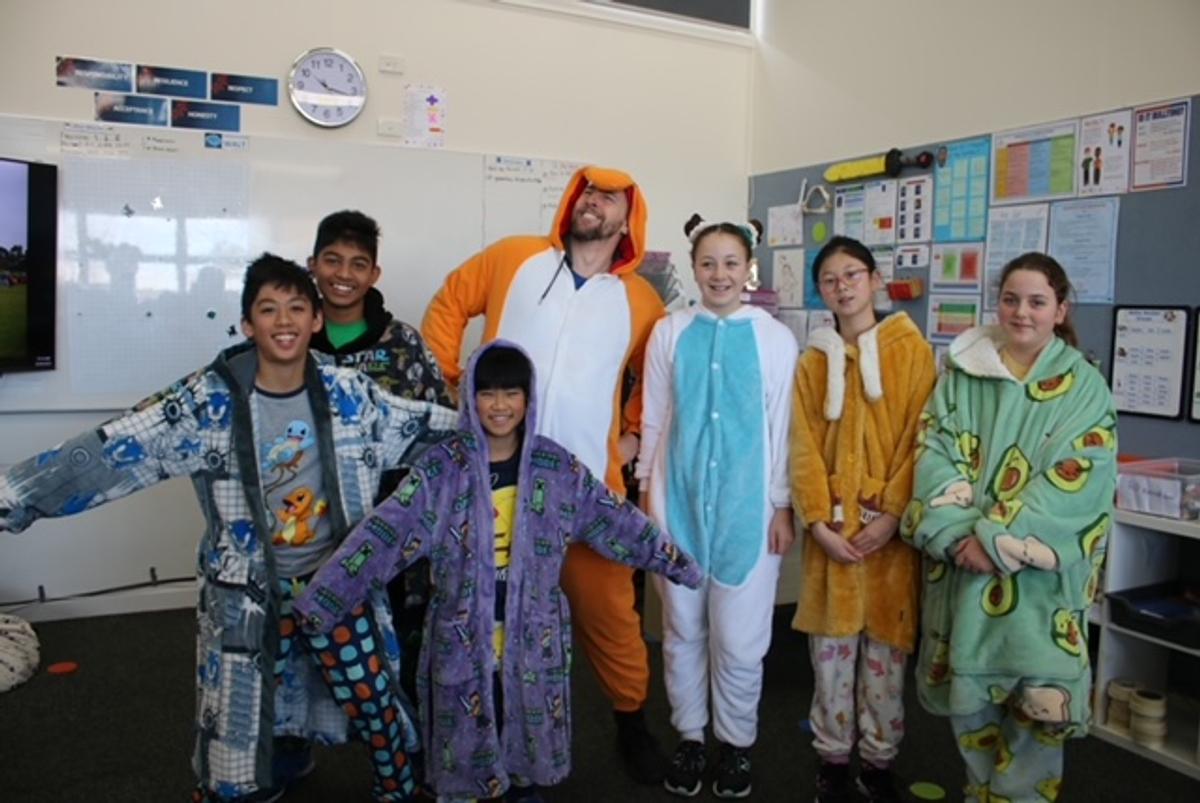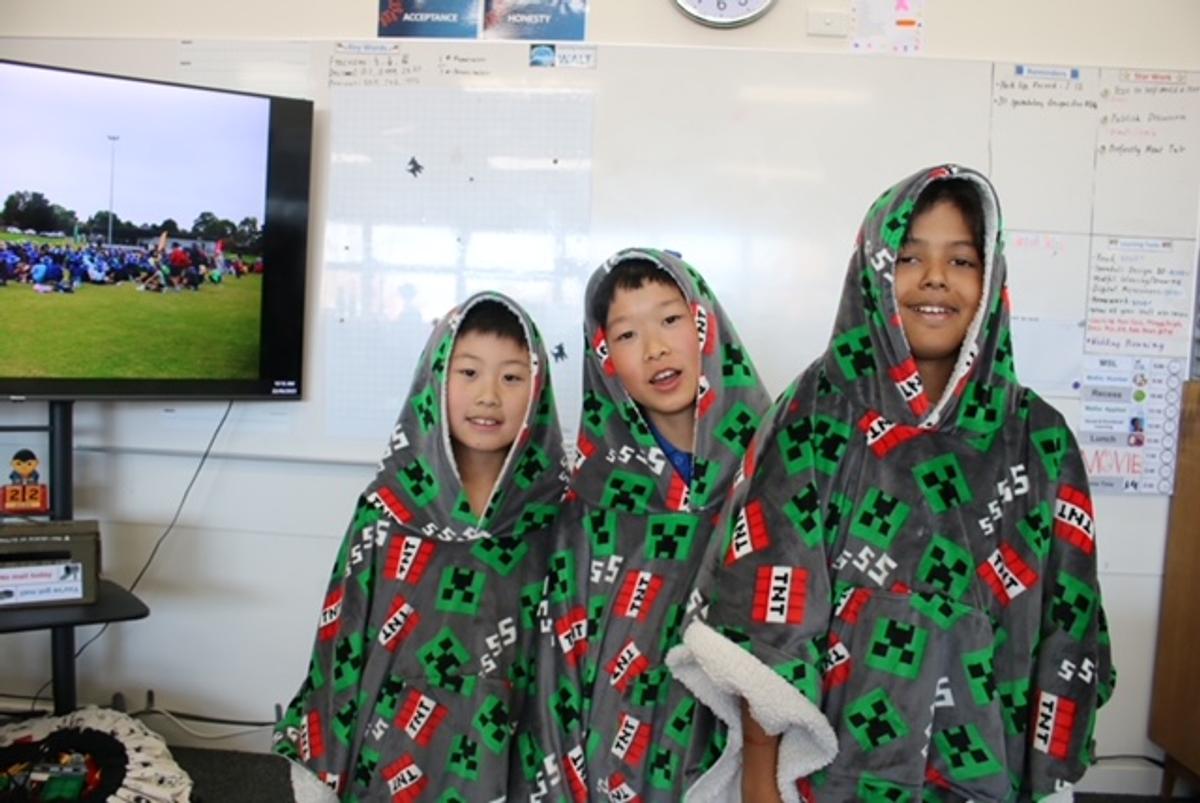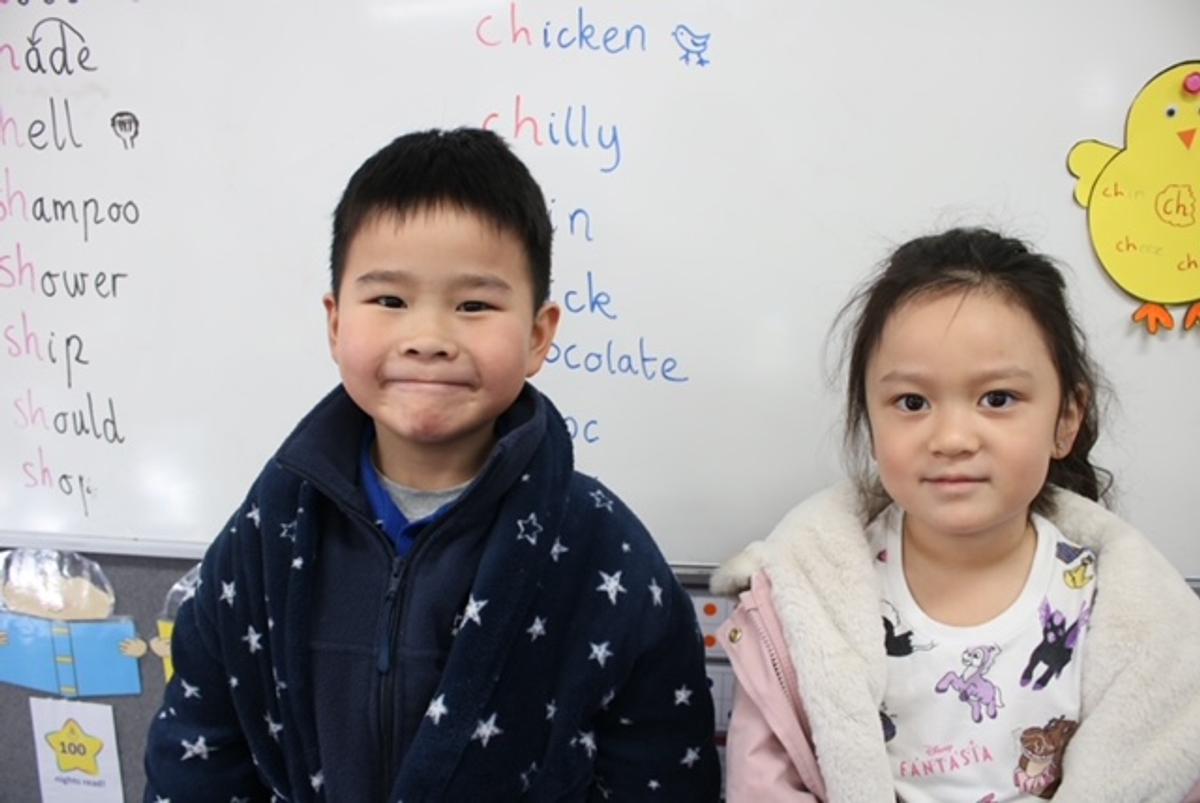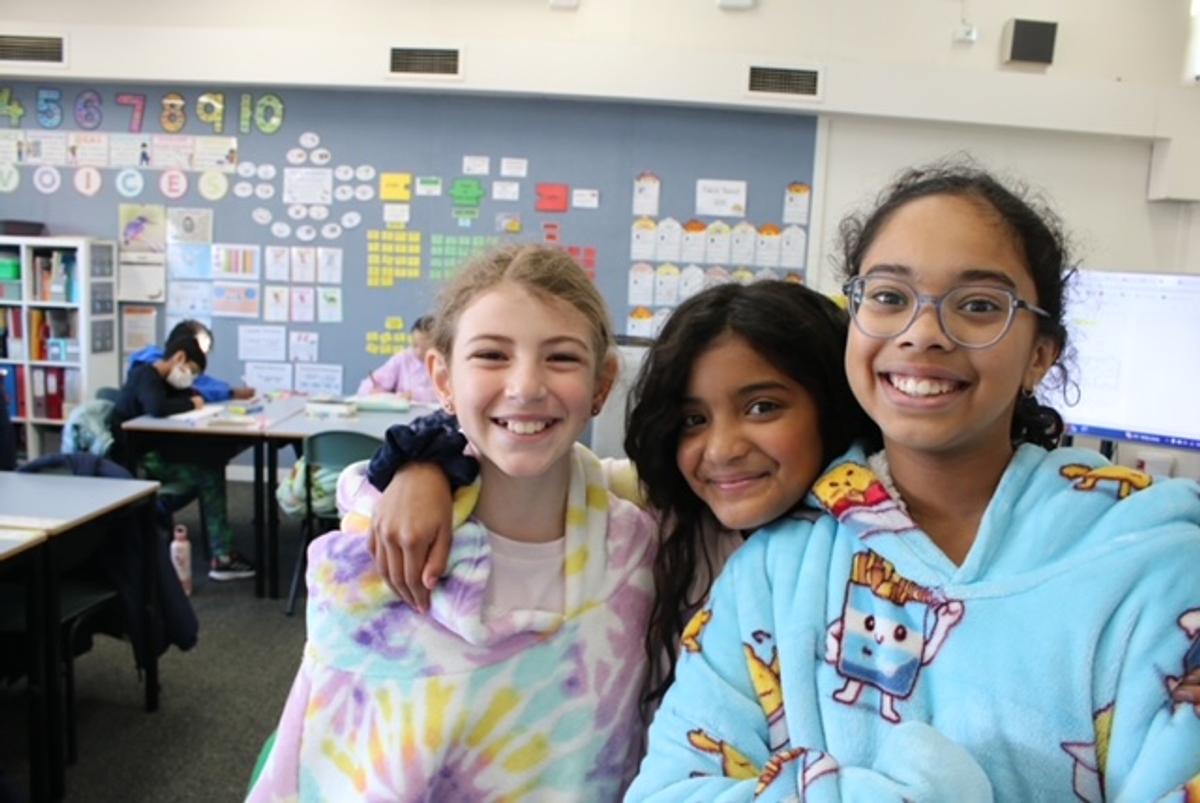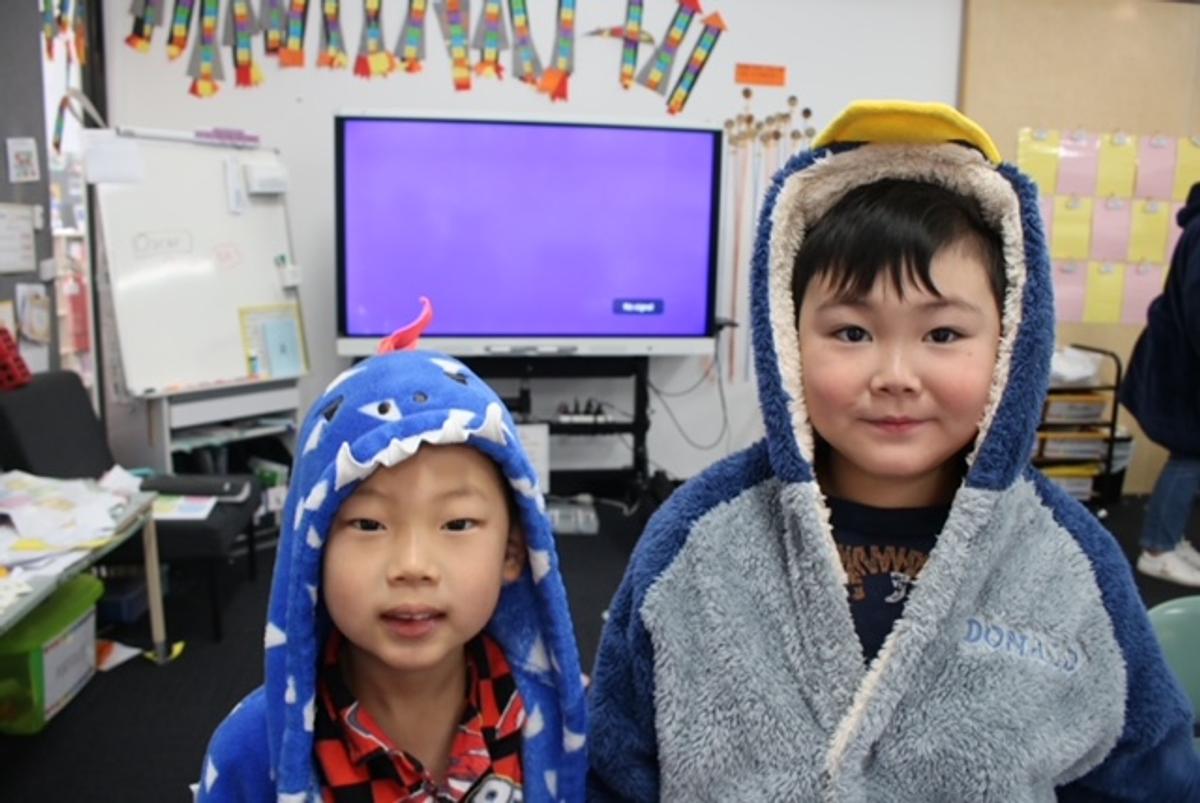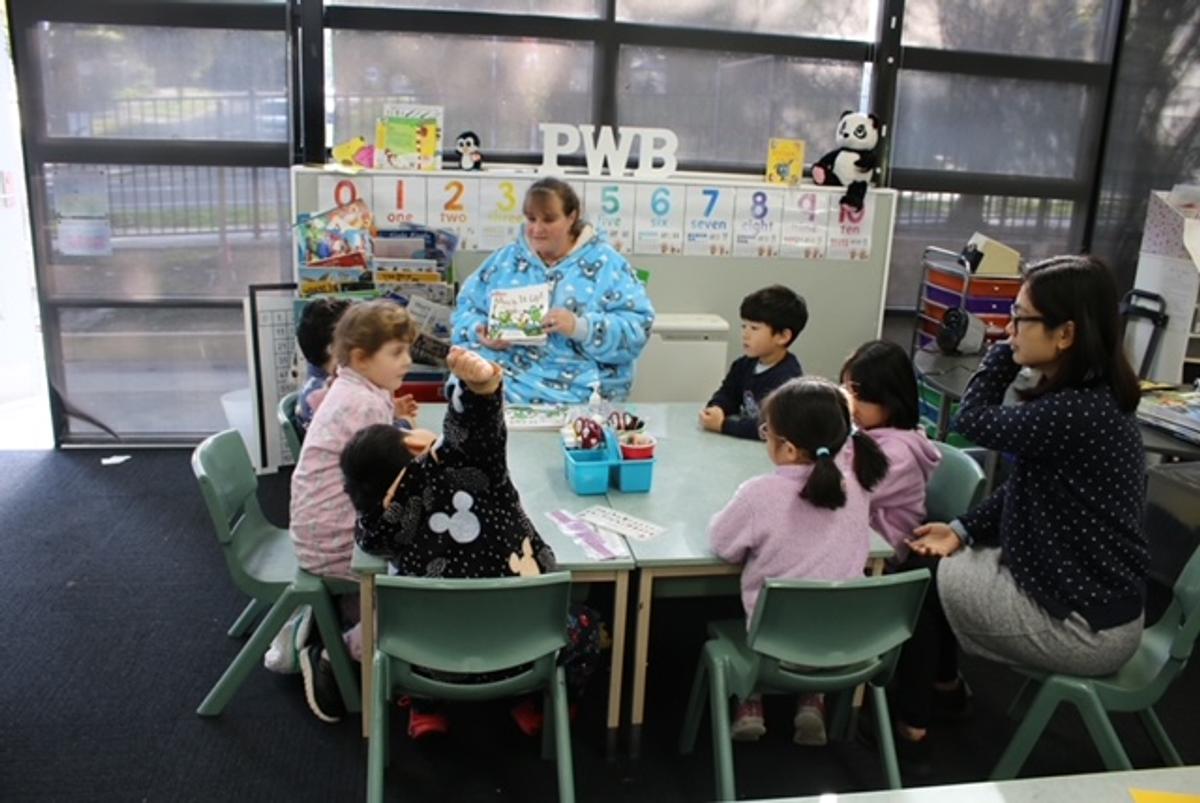Acting Assistant Principal Virgina Beshara - Wellbeing
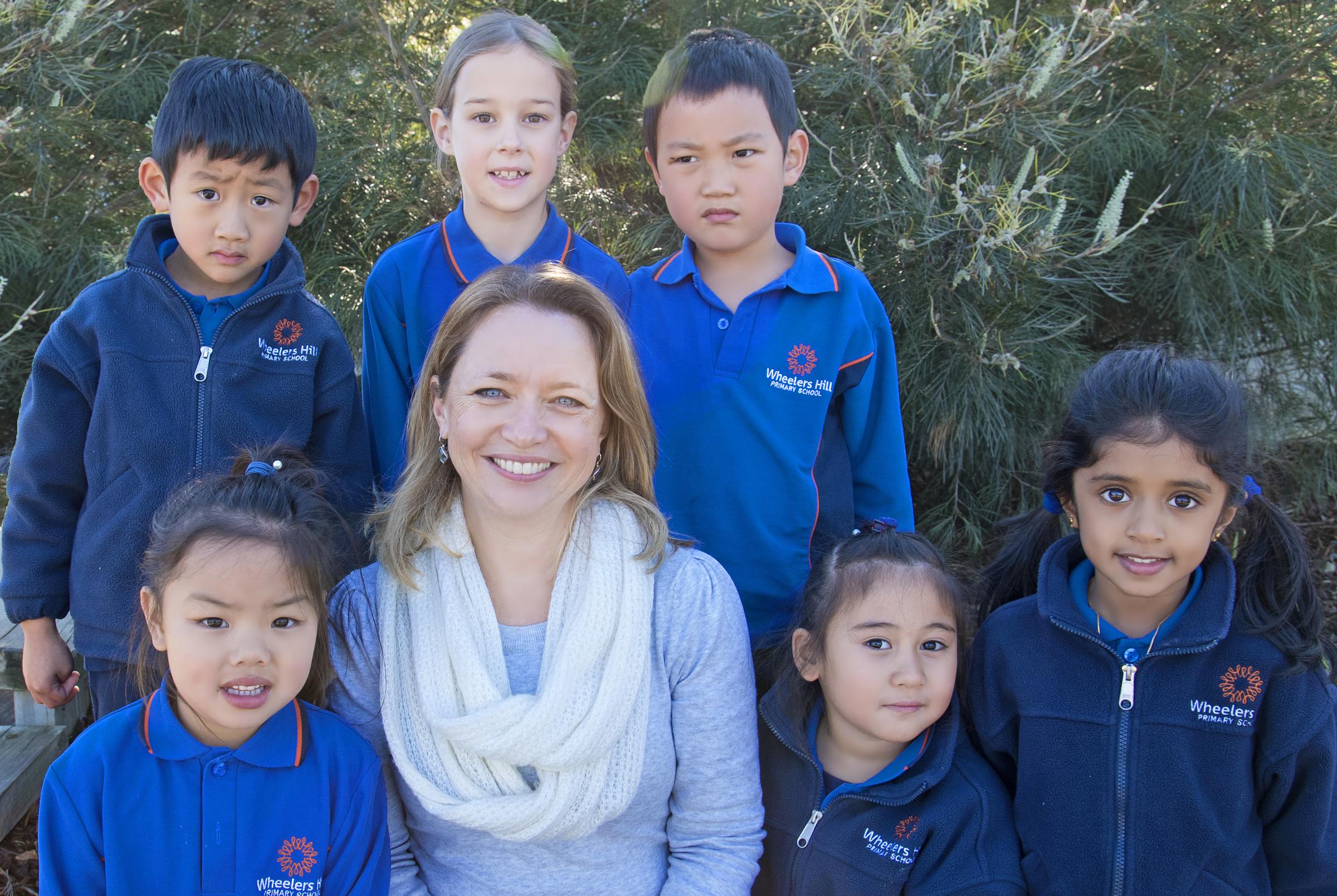
9th June 2023
SWPBS – PJ and Movie Day
On Thursday, all students in WHPS celebrated our end of term SWPBS reward. This was to acknowledge and celebrate the wonderful way our students have displayed our school values of respect, resilience, responsibility, acceptance and honesty. The students enjoyed dressing up in their pyjamas and watching a movie with their class.
Next term, students will continue to earn tokens by demonstrating the school values and voting with their tokens for a reward of their choice.
Here are some comments from our students about how they have displayed our school values this term.
I was responsible by helping my friend and calling a yard duty teacher when she fell over. Gabi 4SM
During four square, I was resilience and honest when some kids had different opinions about if the ball was in or out. Dinuli 5TL
When someone has a different opinion than you, or if you don’t believe that opinion, don’t judge it, say your opinion. That is accepting that someone has a different opinion than you. Menara 5DC
I listened to the teacher and did not talk when the teacher was talking and that is respect and responsibility. Louka 1VB
I was responsible by helping the yard duty teacher by giving them more supplies when they start running out. Avans 2SP
End of Term
It has been a wonderful experience being Acting Assistant Principal for the last four weeks. I have enjoyed a different role and getting to know more WHPS students and families. Katrina Spicer will be back at school from the first day of Term 3. We are sure that she would have had a fabulous time exploring England and France.
I hope you all have a relaxing holiday and have the chance to enjoy some family time.
Virginia Beshara
Acting Assistant Principal
Threats and rewards—or something better?
Source: https://schools.happyfamilies.com.au/schools/insight/threats-and-rewards/
“If you don’t pack away your toys right now, I’m throwing them in the bin!”
It’s the end of the day. We’re tired, or stressed, and we’ve asked our kids a hundred times already to start packing up. Even though we might know that there is a better way, we can’t stop ourselves, and a threat slips out.
The thing is, it seems to work! Suddenly the kids are packing up their toys, fearful that if they stay out they’ll be relocated to the bin. In fact, research shows that threats, verbal reprimands, and time-outs are all effective ways of securing immediate compliance in our children. Which would be great - if our only goal was immediate compliance. The problem is that this compliance is coerced, and if we’re not there to enforce the consequences we lose our ability to influence behaviour. Our kids are more focused on avoiding the punishment than on internalising what we’re trying to teach them!
So, if threats aren’t the ticket to getting our children to do something, rewards must be the right alternative, right?
“If you pack away your toys right now, you can have ice cream!” might be what we say. But we might as well say “If you don’t pack away your toys, you can’t have ice-cream”. Rewards are just threats in disguise. If our kids are still relying on us to give them ice-cream or a gold star or their pocket money in exchange for good behaviour, they’re still not intrinsically motivated to do what we’re asking them to do. Rewards, just like threats and punishments, only work if we’re there to dish out the consequences. They simply don’t promote lasting behaviour change and our kids often lose interest, so if we want to keep enforcing the behaviour, we need to dish out bigger and bigger rewards, or bigger and bigger punishments.
The truth is, both threats and rewards use fear as a motivator – either fear of getting punished, or fear of missing out on the reward. Fear can be a powerful motivator. But there is another thing that motivates us. LOVE.
Love is a much stronger motivator. It drives intrinsic motivation, or motivation that isn’t reliant on external outcomes like rewards and punishments.
Here are three ways we can use love to help motivate our kids:
1. Do it with them. Kids spell love T.I.M.E. They want to be involved in our world. So, if we’re doing something, and we invite them to join in, chances are that they’ll say yes, even for something as routine as tidying up the toys.
2. Make it fun. Kids love to play! Maybe we can challenge them to throw all the blocks into the tub like they’re shooting basketball hoops. Or maybe the cars strewn everywhere need to be driven back to their garage on the shelf. There are so many ways to make even simple tasks fun. Not only does having fun get the job done, it also boosts learning and competence in our kids.
3. Model love and respect for them by trusting that they’ll do it when they’re ready. Simply say “Can you pack up the toys when you’re ready?”, and then let them be. They may need a gentle reminder, but if we step back and let them know that we trust them to get the job done in their own time, there’s a good chance they’ll do it.
Sometimes they still won’t do what we’re asking. When that happens, there are two more things we can do.
1. Just do it for them. Sometimes they’re sick, tired, or cranky. And the truth is that we’re not going to teach them to be lazy slobs as adults by tidying up their room occasionally as kids. (That’s fear speaking!).
2. Set a boundary. Boundaries are different to punishment. A boundary is something we do to ourselves, whereas a punishment is something we do to others. A boundary could mean that our adult sized feet are unwilling to walk through a room strewn with LEGOs, so if they want a book read to them before bed, they need to clear the floor so we can safely get to the bookshelf. Set the boundary, and then let them decide how to respond to it.
Ultimately, parenting isn’t about getting our kids to do things. The only person we can truly control is ourselves. The real focus of parenting is about being the person we want to be, regardless of how our kids are behaving. When we remember that, we can move away from fear-based parenting, and parent with love.

